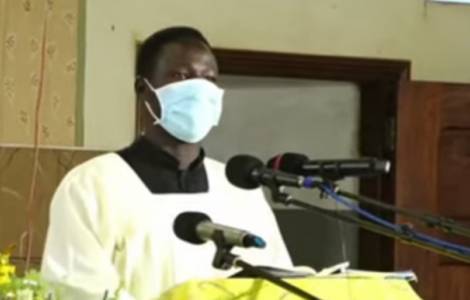AFRICA/UGANDA – COVID-19: The country is torn between a terrestrial economy and a spiritual economy

AFRICA/UGANDA – COVID-19: The country is torn between a terrestrial economy and a spiritual economy
Wednesday, September 29, 2021
Kampala (Agenzia Fides) – “May our desire for a terrestrial economy not be at the expense of a spiritual one,” said James Kakura James, a Ugandan schoolteacher, speaking of the reopening of public spaces and the permanent closure of places of worship. Cult in the country for the Covid-19 emergency.
“Churches and mosques have given life to the current Ugandan economy,” says the memo received by Agenzia Fides. “There are many who question whether places of worship are considered more susceptible to the spread of the virus than public transportation and markets, but for us, who know the meaning and power of communion, prayer and gatherings. Church, this theory does not hold – explains the seminary -. Other places are reopening. Not because it is safer, but because it is considered essential to the future of the country’s economy.
Kakura explains that it was European missionaries, including the White Fathers, the Missionary Society of St. Joseph at Mill Hill, and the Comboni missionaries who introduced formal education to Uganda in the late nineteenth century. “We cannot forget the enormous contribution that the Ugandan Church has made to the economy since the arrival of places of worship in the country.”
The Ugandan bishops affirmed in 1997: “Formal education was initiated by religious sects to eliminate ignorance from society.” Missionaries were pioneers in educating the children of leaders who later became managers at the helm of the country’s economy. The same missionaries continued to build schools, hospitals, and roads. On their part – the Ugandan seminarian insists – it was the Muslim merchants who established trade in Uganda and we owe them also our economy.”
The primary role of the Church is to evangelize and sanctify people, and we must not forget the role of religion in the formation of consciences. “A people that has already been sanctified through the work of the Church becomes an instrument of peace and love, and a central factor of continued economic growth. Any government that wants to develop the economy must first work on sanctifying and training the conscience and morals of its people. This can only be done through the sacraments, which It can never be received by default,” Kakura explains. “How do you think about receiving the holiness that comes through baptism, or the celebration of the Eucharist, or penance, or anointing on radio or television? Can the Eucharist reception be broadcast on television? Does everyone have radio, television, or YouTube?” concludes the young seminarian.
(JK / AP) (Agenzia Fides 29/9/2021)
Participate:

“Award-winning zombie scholar. Music practitioner. Food expert. Troublemaker.”









